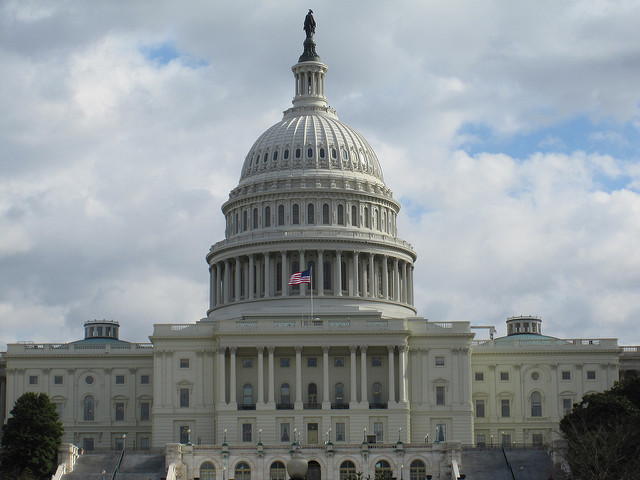
The Republican-passed Tax Cuts and Jobs Act has created a vibrant economy with immense opportunity for workers all over the country to move up the economic ladder.
In 2018, the economy grew at 3.1 growth, totally eclipsing the anemic 1.9 percent GDP growth under the high-tax Obama years. Since President Trump took office, the economy has added over 5.5 million jobs, and 2019 has seen approximately 330,000 jobs created so far. Unemployment is hitting record lows for key demographics including African-Americans, Hispanics, and women. Wages are increasing 3.2 percent, and job openings hit a record high of 7.5 million in February.
Despite this economic good news, there is still work to be done. While the labor force participation rate is on the rise, Congress should still reaffirm its commitment to ensuring that long-term employment opportunities remain available for American workers.
Senator Steve Daines (R-MT) and Rep. Kevin Brady (R-TX) have introduced legislation in their respective chambers that would encourage upward mobility for American workers. Their legislation, the “Jobs and Opportunity with Benefits and Services (JOBS) for Success Act” (S.802/H.R. 1753), reforms the Temporary Assistance for Needy Families (TANF) program to encourage and equip able-bodied adults with the tools they need to find long-term work.
Over time, Congress has allowed TANF’s work requirements to weaken, and many states have abdicated their statutory duty to encourage TANF recipients to find work. For a program designed to help Americans enter the workplace
The JOBS for Success Act introduces accountability back into the process by requiring that all TANF recipients have a job, are actively looking for a job, or are giving back to their community via volunteer work.
Recipients must also meet short and long-term career goals based on individualized plans built around their specific skill level and education. The legislation additionally requires states to issue regular report cards to the federal government on the efficacy of their programs.
The sheer fiscal weight of federal entitlement programs highlights the urgent need for real reform. According to CBO, federal spending on welfare has nearly doubled between 2006 ($369 billion) to 2016 ($744 billion). When factoring in state government spending, total government spending on welfare programs already exceeds $1 trillion annually. Without reform, CBO projects that federal spending alone will exceed $1 trillion by 2026.
Instead of throwing more money at federal programs, the JOBS for Success Act introduces accountability back into the TANF procress. Reforming TANF will build on the success of tax reform by promoting upward mobility so that Americans can get a job and keep their job. And by focusing on fostering an environment where the dignity of work is cherished and upheld, the JOBS for Success Act ensures that future generations of American workers will enjoy stable long-term employment.

